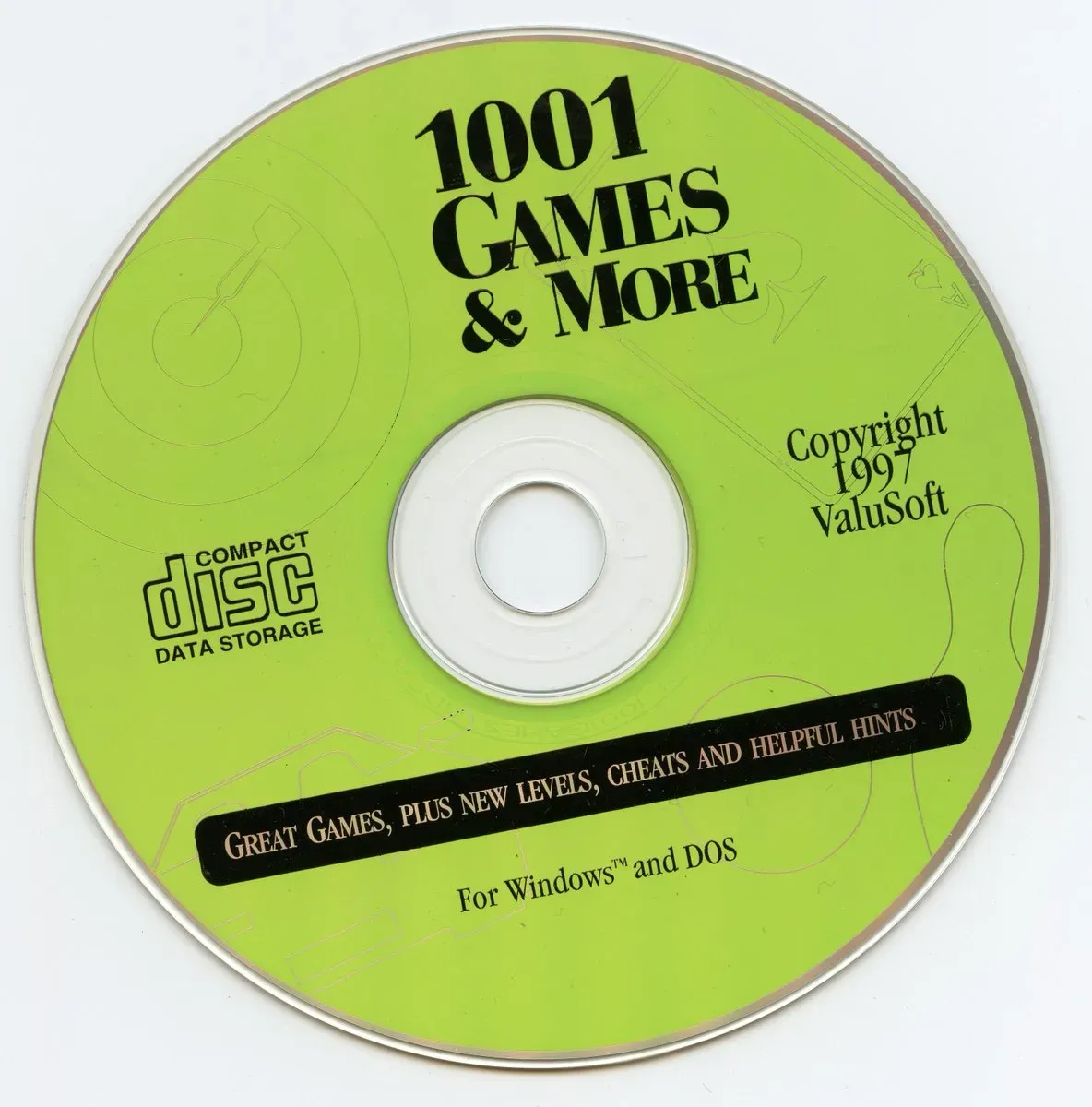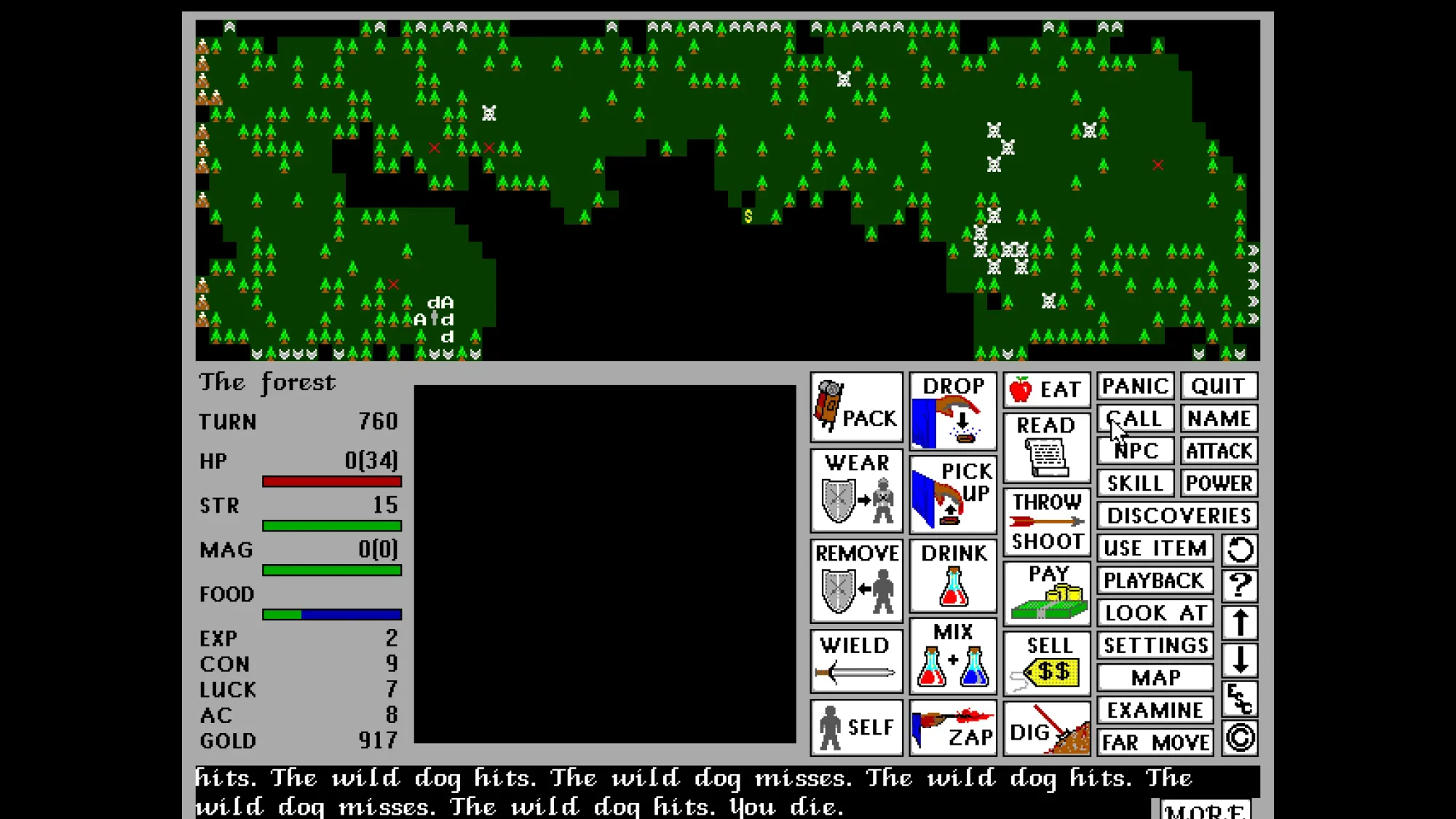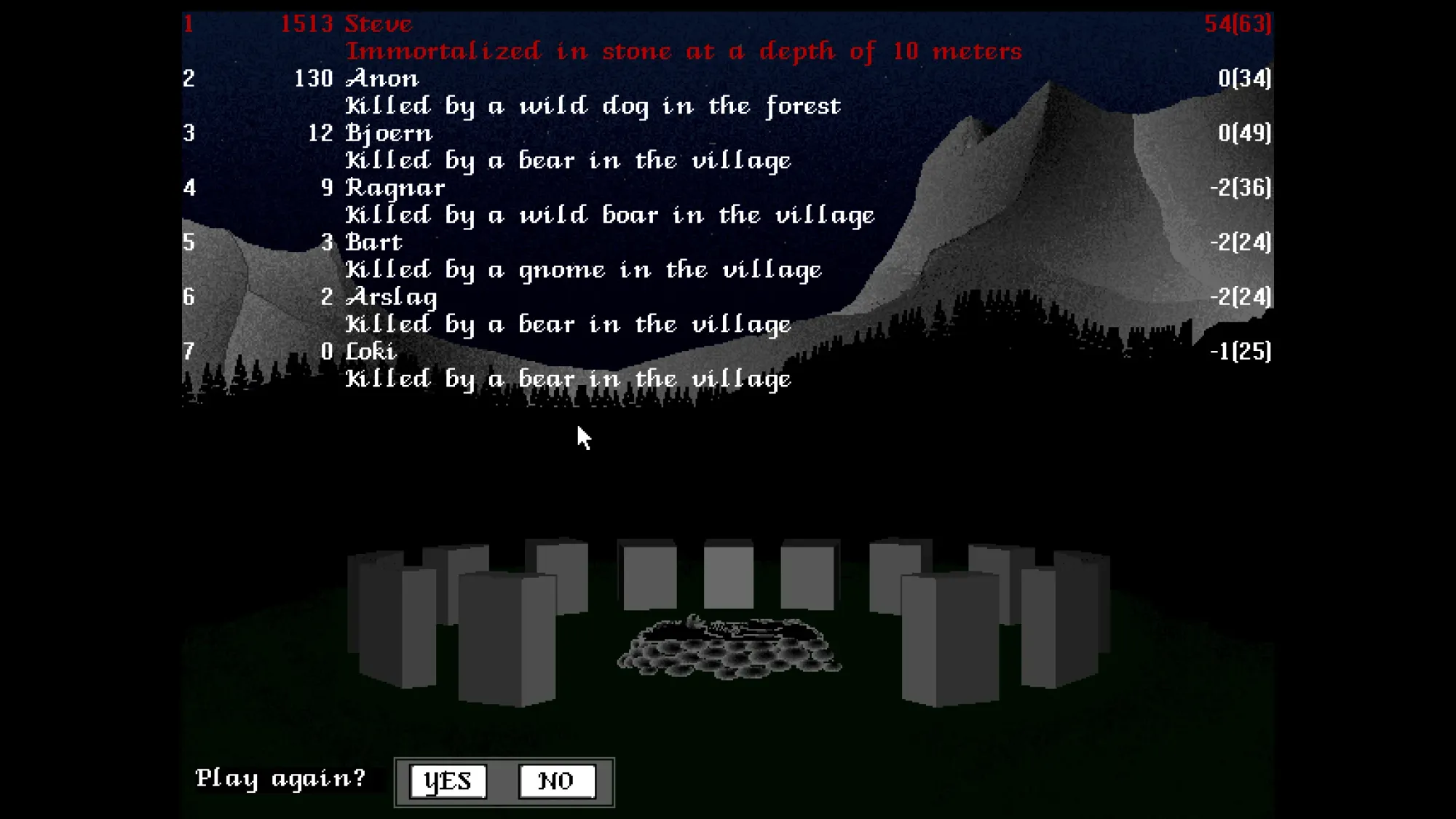The 1992 Viking Roguelike That’s Still Kicking My Ass
A tribute to Valhalla, a game I still love nearly 25 years after first playing it

I was around 10 years old, digging through one of the bargain bins at Wal-Mart, not knowing that this moment would send me on a journey to Valhalla. My mom had scraped together the money to get us our first home computer. It was a sleek beast cruising along at 75 MHz with a beefy 4 megs of RAM. I’m not sure how much debt we took on to grab this piece of hardware, but it was probably crippling. Not really knowing anything about PC gaming, I pulled out a disc that looked both promising and affordable: 1001 Games for the PC (or something like that). It was $9.99.
Sold.

Being unfamiliar with shareware at the time, I was disappointed to find that a lot of the interesting games were basically demo versions: you’d have to send them ten bucks or however much to get the full game. Wanting to squeeze as much as I could out the damn thing (I couldn’t afford to get games often), I played the hell out of those demos and had a great time doing it. That disc introduced me to some classic games like Commander Keen, Duke Nukem, Blackthorne, and Cannon Fodder.
There was one game that single-handedly justified buying that oversized demo-disc: Valhalla (also known as Ragnarok). I found this 1992 roguelike RPG as I was hunting for something special through the countless folders on that CD. I booted it up, made a character, loaded into the starting area, and died immediately. A little screen popped up showing my character’s name and the way he met his end:
“Killed by a bear in the village.”
I could sure as hell do better than that. Soon enough, that screen was full of names. They ran into more bear trouble, fell into quicksand, got stabbed to death by gangs of gnomes; all pretty early into their adventures. It was my first experience with a roguelike and it was magical.
Valhalla allowed players to choose one of six character classes (Viking, Sage, Blacksmith, Alchemist, Conjurer, and Woodsman) and take them through a procedurally generated world based on Norse mythology. The game focused on exploring, fighting enemies, and collecting loot while trying not to get murdered by your own curiosity.

Death was permanent. In the old school version, it would delete all of your saves as it immortalized your character on the post-game memorial screen. There was a list of main quests that remained the same, but I can’t say I ever made any meaningful progress on those before inevitable death found me.
The quests were never really the point.
For me, Valhalla promised the rewards of endless discovery and experimentation. I didn’t have the manual for the game, so I spent hours just figuring out the basics of the classes, weapons, items, and enemies. For such a simple game, it was extremely deep and there were so many ways to play. Classes had their own special abilities; a sage could write powerful scrolls, a woodsman could craft arrows, and an alchemist could learn potion recipes. These characters could undergo significant changes over the course of a game as they interacted with the environment and a sizeable yet varied list of enemies.
My personal favorite was the polymorph wand, which would transform your character into one of the other creatures in the game. Transformation became my top priority in pretty much every run. Turning your sage from a frail little scroll-nerd into a fire giant with a zap was awesome. Or you could end up turning into a rat. All your armor would fall off and you wouldn’t be able to use weapons anymore or carry much of anything. It was always a gamble. I remember getting turned into a bear once and just rolling with it. I just wandered around the forest fighting anything and anyone — what I imagine bears do on a normal day — until I got murdered by something stronger than me.

Valhalla was a game that sparked my imagination. The simplistic graphics and lack of animation had me relying on the stories I was creating in my head. The strong roleplaying elements offered made it feel less like a video game and more like playing with action figures as a kid. I became more focused on coming up with interesting scenarios and epic adventures rather than accomplishing any specific goal or beating the game.
As I became more familiar with the game, it was fun making it further across the map and finding more novel ways my characters can meet their end. This was my first experience with a roguelike game, and it remains an outstanding example of the genre.
Roguelikes have received much love in recent years, thanks to the creative efforts of indie studios. Games such as Darkest Dungeon, Everspace, Slay the Spire, and Hades popularized the genre for a new generation. It would be great to see a remake of this classic from the nineties. But for now, the original Valhalla is floating around the internet as abandonware, still playable using DosBox, waiting for a well-deserved resurrection.
